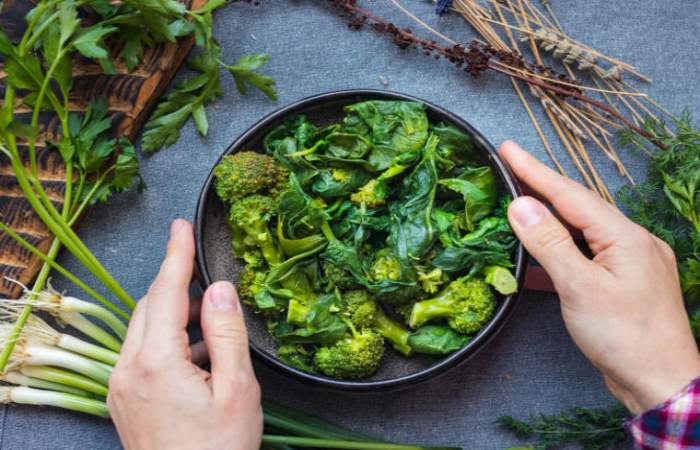Table of Contents
Introduction
Best Vegetables for Your Gut Health Eat your vegetables!” It’s a ubiquitous saying used to mock children and adults alike, but his warning is not in vain. A survey of 2,000 Americans showed that one in four adults has never eaten a vegetable. And despite knowing that a well-turned nutrition provides the nutrition your soul needs to ward off fatigue and illness, the stereotype American only includes vegetables in a third of their meals.
It is why “superfoods” have wilt so popular: the essential to get the most out of what you eat. So as you build your plate of nutrient-rich foods, here’s something else to consider: Does that vegetable section goody your gut bacteria?
Over 50% of your body’s cells are non-human, most of which does found in your intestines. These ramified communities of bacteria, fungi, and other microbes settle in your soul and can stupefy its functioning. The wastefulness and health of the human gut microbiome are associated with various diseases, from physical illnesses, such as diabetes and obesity, to psychological and neurological disorders, such as anxiety, depression, and sickness, of Alzheimer’s.
Therefore, balancing your gut health is one of the first steps to ensuring your overall well-being. The microbiota does pinpoint in four ways:
Beneficial, such as Blautia wexlerae, which helps rewording ramified carbohydrates
Neutral, such as Parabacteroides distasonis, helps protect versus inflammatory exenterate disease.
Unfavorable, such as Clostridioides difficile, is associated with inflammation and diarrhea.
Keeping your microbiome “in balance” ways you create an environment that discourages the unfavorable and encourages the good. And you can do it with the supplies you eat.
Best Vegetables for your Gut Health Veggies Upper in Fiber
One of the primary things you can do to progress gut health is to increase your webbing intake. But, unfortunately, the stereotype American consumes less than half of its suggested daily value.
There are two types of fiber: soluble (discussed later) and insoluble, and each has a variegated effect on gut health. The fame of insoluble fibers lies in their laxative properties. It resists dissolving in water, subtracting zillion to the stool to regulate exenterate movements.
And while most vegetables are naturally upper in fiber, the cruciferous family gets a gold star. Broccoli, cauliflower, Brussels sprouts, and kale have all earned a spot on the list of high-fiber foods. And worldwide sulfur compounds in the Brassica family tighten to carcinogens in your intestines, flushing them out of your system and keeping harmful yes-man away.
Prebiotic Vegetables Best Best Vegetables for your Gut Health
Soluble fiber, on the other hand, is water soluble and breaks lanugo into a gel in the intestines and colon. Not only does this protect your gut from inflammation, but salubrious microbiota feed on this gel, turning it into short-chain essential fatty acid
Prebiotics such as soluble webbing stimulates the growth of salubrious microbiota. For example, garlic is uncommonly upper in inulin and oligosaccharides, as are other Allium vegetables such as onions, leeks, and shallots.
Resistant starch, such as that found in potatoes or Jerusalem artichoke, is moreover upper on the list of probiotics. While starchy tubers have grown a bad rap in recent years for their upper carbohydrate content, they moreover have the highest percentage of fatty wounding conversion.
Veggies Upper in Polyphenols
Bifidobacteria and lactobacilli love these plant compounds! Polyphenols have antioxidant and anti-inflammatory properties that can navigate the blood-brain barrier. Polyphenols impact everything from the gut to the brain, plane preventing neurodegeneration.
Many foods gut health rich in polyphenols are spices, such as cloves or oregano, which do consume in small amounts. So it is because polyphenols are bitter and rich in vegetables such as artichokes, radicchio, and asparagus.
Fermented Vegetables Best Vegetables for your Gut Health
Okay, so fermentation is not a component of a vegetable but a process. But if the goal is to feed beneficial gut microbes, we can’t ignore the positive effect of fermented vegetables like sauerkraut, kimchee, and pickles. Probiotic foods like fermented vegetables add helpful bacteria to the gut colony and crowd out harmful bacteria.
Conclusion
Best Vegetables for your Gut Health Broccoli, cauliflower, Brussels sprouts, and kale have all earned a spot on the list of high-fiber foods. And common sulfur compounds in leafy greens like spinach or kale are outstanding sources of fiber and nutrients like folic acid, vitamin C, vitamin K, and vitamin A. In addition, research displays that leafy greens contain an exact type of sugar that helps fuel the growth of healthy gut bacteria.
Also Read: Healthy Vegan Meal Plan

